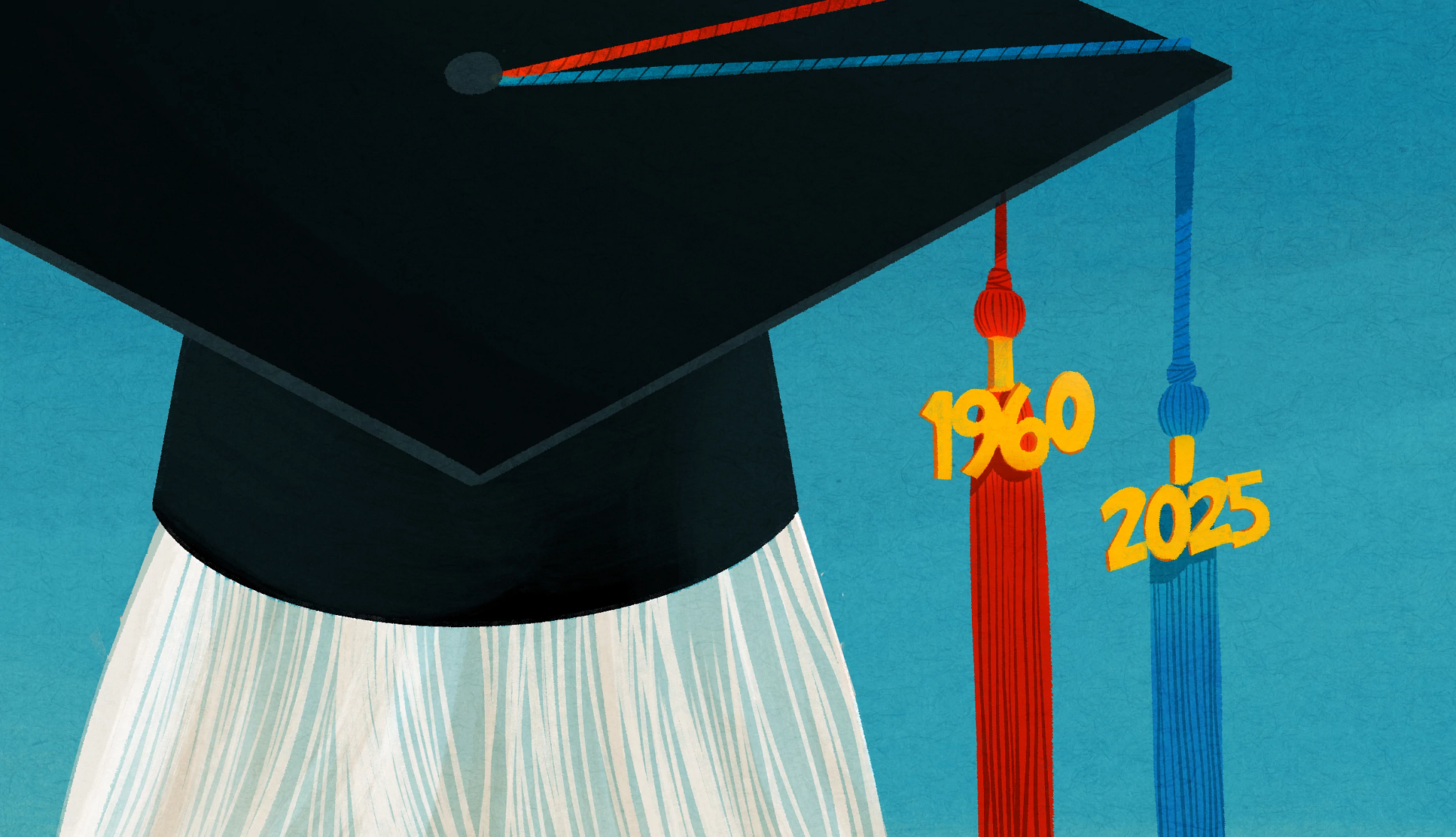AARP Hearing Center


It was a long time between graduations, at least for me. I graduated from Bennington College in 1960 with a Bachelor of Arts degree. I am graduating next week from Johns Hopkins University with a Master of Liberal Arts. Sixty-five years between, practically a lifetime, and a lifetime in which I never thought much about getting an advanced degree.
Until the pandemic. Remember the pandemic? I live in New York City, and for the first six months I hardly went out at all. The streets were quiet except for the sound of ambulance sirens rushing patients to the hospitals. And there was the clatter at sundown of people standing by their open windows and beating on pots, a grateful salute to medical workers and first responders.
I stayed in my apartment and worked on my computer all day with my colleagues at AARP, and at night I streamed. I streamed a lot. After those first six months, I began to feel I had to do something more. One Saturday morning, for no particular reason, I started looking for online master’s degree programs.
I knew I had the time that I’d previously spent going back and forth to my job in Washington, D.C., and the time I had spent seeing friends on weekends. After all, both my sons had advanced degrees. One had two master’s, the other a master’s and a law degree. If they could do it, maybe Mom could, too.
I looked for programs that offered history, government and literature courses, which had always been my favorites way back when. I thought the Hopkins program looked the best. When I applied, they asked me to send my college record. I wondered if it was engraved in stone. But no, it was sent off promptly. I only recently saw my transcript — not engraved on a tablet, but neatly recorded on a typewriter.
So I started in February 2021 with a course called Leadership and the Classics. Nowadays, managers often convene long meetings to discuss leadership styles. In fact, there is a whole cohort of coaches and lecturers in “the leadership business,” giving presentations and individual coaching sessions to business executives on how to be an effective leader. By taking the course, I realized that throughout history, at least from Plato on, philosophers, historians and writers have been analyzing leadership and discerning the unique qualities of great leaders.
I also learned from that first course that school isn’t quite what it used to be. I expected to be challenged to write long, footnoted papers for each course, and I took several courses like that. But my classmates and I were also asked to be creative. We had to illustrate our work with appropriate photos, audio or even videos. Sometimes, I admit, the technical challenges were even harder than compiling footnotes at the end of papers per the Chicago Manual of Style, which isn’t fun at all.




































































You Might Also Like
An Empty Nest Can Create a Fuller Life
Why ‘open door’ is a happier, more applicable descriptor for what happens after the kids leave homeGreat Ways to Celebrate Living Alone
Blast your music loud, stay up late and live alone with joyful abandon
Take an Adult Education Class
One of the best tips for healthy aging is to never stop learning